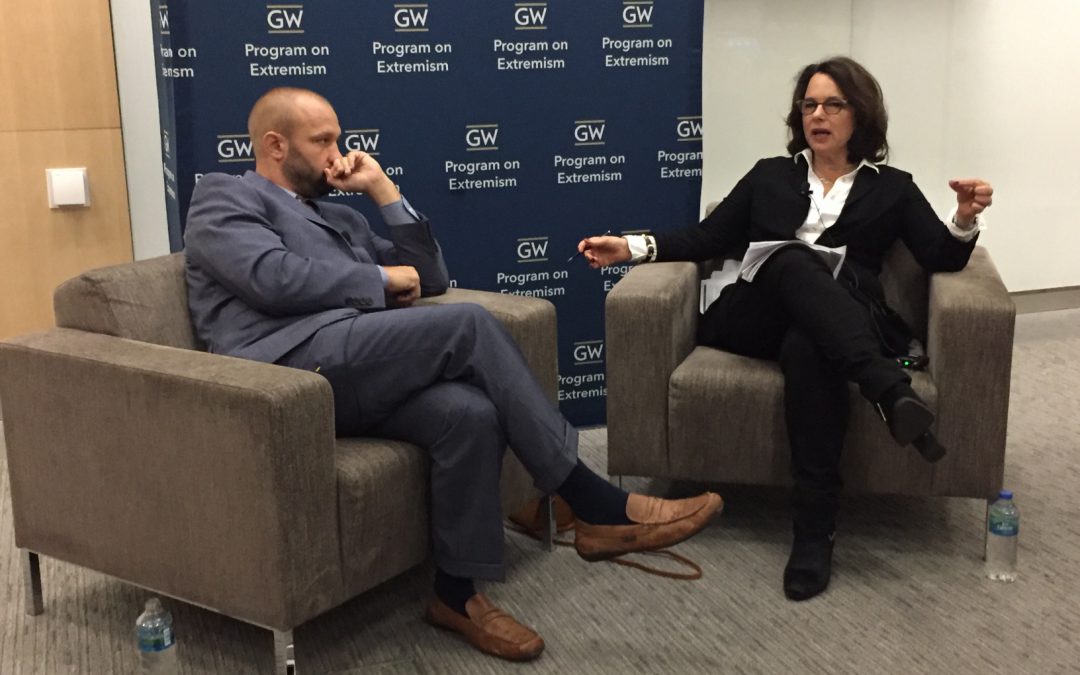WASHINGTON — Law enforcement needs a nuanced understanding of how Islamic extremists recruit in order to be effective, Jesse Morton, a former extremist and al-Qaida recruiter, said at a George Washington University event Monday.
For Revolution Muslim — a New York-based al-Qaida propaganda group he helped found in 2007 — the goal was to have information accessible, not to recruit individuals actively. However, with the ubiquity of the internet, recruitment has moved mainly online, where an individual can go down a rabbit hole and end up connecting with a recruiter.
Morton, a research fellow in the Program on Extremism at GW’s Center for Cyber & Homeland Security, pleaded guilty in 2012 to conspiring to solicit murder, making threatening communications and using the internet to place others in fear. He became an FBI informant and was released after serving less than four years of his 11-and-a-half-year sentence.
Such a hire as Morton’s in the U.S. has never been done with former Islamic extremists (the practice is more common in European countries), GW program director Lorenzo Vidino said. As a former recruiter, Morton provides insight into understanding the radicalization process and countering the al-Qaida narrative.
From working with law enforcement, Morton said the number of suspects on the radar is simply too large. As that number swells, it becomes difficult to devote attention to those who actually warrant it.
A potential solution? “The measuring sticks we’re using right now don’t include ideology,” he said. “There’s no real ability to pay much attention to ideology.”
Although there is no algorithm to measure ideology, Morton said law enforcement should pay attention to what people are posting online, who they’re talking to and where they’re connected.
He said it is also important for authorities to have methods for deradicalizing individuals, including alternative intervention programs. An example, Morton said, would be to send deradicalized persons, with empathy for the situation, to dissuade potential recruits.
Morton, who expressed remorse for his actions, was candid about his difficult childhood. He said he ran away from an abusive home at 16. As a teenager on the streets, his mindset was, “The world’s not nice to you, so let me tear down this one and rebuild one in my own image.”
In 2016, Morton said, he remains a Muslim, but rejects extremist Islamic ideology. An FBI agent who treated him with understanding helped him turn away from extremist beliefs. While an extremist, he earned a master’s degree in international affairs from Columbia University.
“I think he’s remarkably open about the role that personal trauma played in his recruitment,” Jessica Stern, a professor at Boston University who specializes in terrorism and moderated the conversation with Morton, said after the event. “I think that’s amazing.”

